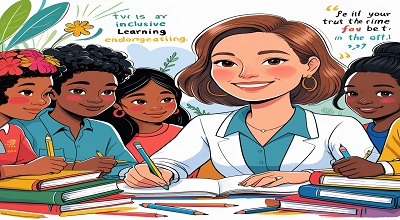Positive Teacher-Student Relationships
In the realm of education, the relationship between teachers and students plays a pivotal role in shaping the learning environment and influencing student outcomes. Positive teacher-student relationships are not merely beneficial; they are essential for fostering an atmosphere conducive to learning, growth, and development. This article delves into the significance of these relationships, exploring their impact on academic success, emotional well-being, and classroom dynamics.
Understanding Teacher-Student Relationships
What Are Teacher-Student Relationships?
Teacher-student relationships refer to the connections formed between educators and their students. These relationships are characterized by mutual respect, trust, and open communication. A positive relationship can manifest in various ways, including supportive interactions, encouragement, and a genuine interest in students’ well-being.
The Importance of Positive Relationships
Research has consistently shown that positive teacher-student relationships are crucial for several reasons:
- Academic Achievement: Students who feel connected to their teachers are more likely to engage in the learning process, leading to improved academic performance.
- Emotional Support: A strong relationship provides students with emotional security, which is vital for their overall well-being.
- Behavioral Improvements: Positive interactions can lead to better classroom behavior, reducing disruptions and enhancing the learning environment.
Building Positive Teacher-Student Relationships
Strategies for Establishing Connections
Creating a positive relationship with students requires intentional effort. Here are some effective strategies:
- Show Genuine Interest: Take the time to learn about your students’ interests, backgrounds, and aspirations. This helps in building rapport and trust.
- Encourage Open Communication: Foster an environment where students feel comfortable expressing their thoughts and concerns. This can be achieved through regular check-ins and open-door policies.
- Be Approachable: Maintain a friendly demeanor and be accessible to students. This encourages them to seek help and guidance when needed.
- Provide Constructive Feedback: Offer feedback that is specific, actionable, and supportive. This helps students understand their strengths and areas for improvement.
- Celebrate Achievements: Acknowledge and celebrate both small and significant accomplishments. This reinforces positive behavior and motivates students to strive for success.
The Role of Empathy
Empathy is a cornerstone of positive teacher-student relationships. Understanding students’ perspectives and emotions can significantly enhance the connection between educators and learners. When teachers demonstrate empathy, students feel valued and understood, which fosters a sense of belonging in the classroom.
The Impact of Positive Relationships on Learning
Academic Outcomes
Positive teacher-student relationships have a direct correlation with academic success. Students who feel supported and valued are more likely to participate actively in class, complete assignments, and perform well on assessments. This engagement is crucial for deep learning and retention of knowledge.
Social and Emotional Development
Beyond academics, these relationships play a vital role in students’ social and emotional development. A supportive teacher can help students navigate challenges, build resilience, and develop essential life skills such as communication and collaboration.
Classroom Management
Effective classroom management is often rooted in the quality of teacher-student relationships. When students respect and trust their teachers, they are more likely to adhere to classroom rules and expectations. This creates a positive learning environment where all students can thrive.
Challenges in Building Relationships
Time Constraints
One of the significant challenges teachers face is the limited time available to build relationships. With packed curricula and administrative duties, finding time to connect with each student can be difficult.
Diverse Student Needs
Students come from various backgrounds and have different needs. Understanding and addressing these diverse needs requires effort and sensitivity from educators.
Overcoming Barriers
Teachers may encounter barriers such as language differences, cultural misunderstandings, or past negative experiences that can hinder relationship-building. It is essential to approach these challenges with patience and a willingness to learn.
The Role of School Culture
Creating a Supportive Environment
A school’s culture significantly influences the ability to foster positive teacher-student relationships. Schools that prioritize collaboration, respect, and inclusivity create an environment where relationships can flourish.
Professional Development
Investing in professional development for teachers can equip them with the skills and strategies needed to build strong relationships with students. Training in communication, empathy, and classroom management can enhance educators’ effectiveness.
Conclusion
Positive teacher-student relationships are fundamental to creating a thriving educational environment. They enhance academic performance, support emotional well-being, and improve classroom dynamics. By prioritizing these relationships, educators can foster a culture of respect, trust, and collaboration that benefits all students.
FAQs
1. Why are positive teacher-student relationships important?
Positive teacher-student relationships are crucial because they enhance academic achievement, provide emotional support, and improve classroom behavior, creating a conducive learning environment.
2. How can teachers build positive relationships with students?
Teachers can build positive relationships by showing genuine interest in students, encouraging open communication, being approachable, providing constructive feedback, and celebrating achievements.
3. What role does empathy play in teacher-student relationships?
Empathy helps teachers understand students’ perspectives and emotions, fostering a sense of belonging and trust in the classroom.
4. What challenges do teachers face in building relationships with students?
Challenges include time constraints, diverse student needs, and overcoming barriers such as language differences and cultural misunderstandings.
5. How does school culture impact teacher-student relationship?
A supportive school culture prioritizes collaboration, respect, and inclusivity, creating an environment where positive relationships can flourish. Professional development for teachers also plays a significant role in enhancing relationship-building skills.
